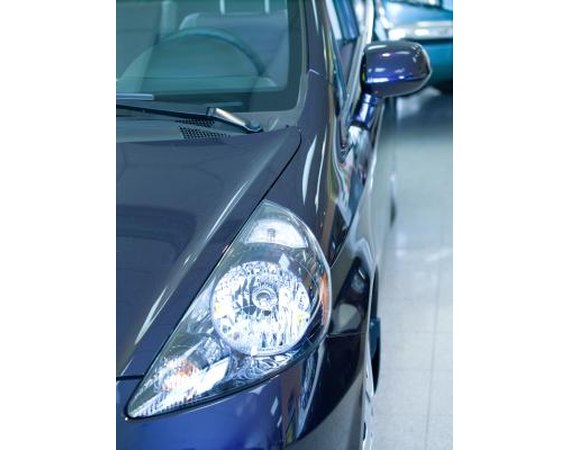It's not in the interest of the lender for you to have your vehicle repossessed. Repossession of a delinquent borrower's car costs the lender money. Lenders are more than happy to assist borrowers faced with financial hardship. Contact lenders the moment you know your finances are in danger. If you wait, and chronic late payments become the norm, you may not have an avenue for refinancing.
Ask the Lender
Contacting the lender and asking for assistance is the best way to find help to refinance the vehicle. Lenders have access to numerous assistance programs designed to help those faced with financial hardship. Loan modification programs can allow the borrower and lender to redraw the terms of the loan and bring the payments down for the borrower. Call and make an appointment with the lender today or stop by your lender's location and take the next available appointment with a loan officer to find out what they can do for you.
Use a Cosigner
When financial hardship happens, chronic late payments cause a borrower's credit rating to drop, and banks will likely require a cosigner for additional refinancing. Find a cosigner before discussing refinancing with your lender and ask the cosigner if they are willing to help you. Cosigners should have a substantially better credit rating than you and not have large amounts of debt. They should also understand that by co-signing the loan they are responsible for payments if you fail to make them. Parents, relatives and friends are where to start when looking for a cosigner.
Consolidate Loans
Contact a lender you have other loans with and ask about including the car loan in a consolidation. Lenders may be willing to restructure a mortgage or other type of loan to include the car loan. This means the lender would pay off the original car loan and add the total of the payoff to the restructured loan. Consolidation loans can occur from any lender; you do not need to have a loan history with the bank to be extended a consolidation loan. Contact banks in your area and ask if they offer consolidation loans.




















